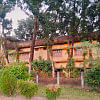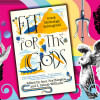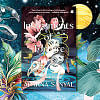Reading Begum Rokeya, again and always

Begum Rokeya was once described as a "Spider Mother" (makar-mata or makarsha janani) in her biographical account but there is nothing sinister in this metaphor. The image of the spider here symbolises the quiet, patient, and selfless labour of an educator, caring for children who were not her own. Shamsunnahar Mahmud, her close co-worker, wrote: "Day after day in this way, with the blood of her own breast, Spider Mother began to revive hundreds of baby spiders into new life."
This hauntingly beautiful image stayed. It became the title of Ben Baer and Smaran Dayal's book, Spider Mother: The Fiction and Politics of Rokeya Sakhawat Hossain—a tribute to Rokeya's tireless fight for women's education, her bold feminist imagination, and her deep emotional impact on generations of women and girls who came after her.
Spider-Mother brings together a curated selection of Rokeya's most compelling fictional and political writings. The editors have chosen works that exemplify her reflective and speculative engagements with the world around her, texts that pushed against the boundaries of how gender, religion, science, and power were conventionally discussed. From the visionary techno-utopia of "Sultana's Dream" to the sharp critique of gendered seclusion in "Burka", from reimagining biblical allegory in "Fruit of Knowledge" to interrogating the very structures that shape a woman's voice in "Woman Prisoner", the collection captures Rokeya's literary range and radical insights. The writings are arranged in a largely chronological order except for "Sultana's Dream", her only English-language fiction. One of the key intentions of this book is to make her work accessible to a wider, multilingual readership. The editors and translators have taken special care to preserve the distinctiveness of Rokeya's style in translation, believing that her clarity, rhythm, and rhetorical power are essential to the impact of her ideas. Their goal was not to smooth out or modernise her voice, but to retain the integrity and resonance of the original texts, allowing readers to experience both the substance and style of Rokeya's thinking.
For many of us, our first encounter with Begum Rokeya's revolutionary voice came through "Sultana's Dream", perhaps through a college assignment or a borrowed copy passed around in class. It's one of those texts that feels strangely familiar the moment you read it, not because it reflects the world we live in but because it boldly imagines the one we don't. And considering it was written in 1905 by a Muslim woman in colonial Bengal, its radical imagination still surprises and inspires.
"Sultana's Dream" is a feminist utopia told through a short story where the protagonist, Sultana, wakes up to find herself in "Ladyland"; a place where women rule the world and men are kept in seclusion, a satirical reversal of the gender norms of Rokeya's time. Through sharp wit and subtle critique, Begum Rokeya envisions a society run on logic, peace, and scientific progress; free from the violence and pollution caused by men. "Sultana's Dream" is often described as utopian, but it also serves as quiet defiance, a refusal to accept the status quo. It's not just an early feminist text, it's a testament to the transformative power of imagination in the face of structural oppression.
What makes this short tale even more groundbreaking is how it prefigures concepts of ecofeminism, long before the term was coined. The harmonious balance between nature, science, and society in Ladyland mirrors many of the ideas we now associate with ecofeminist thought. As artist Chitra Ganesh reflects, "Sultana's Dream, and the visual grammar it generates remind us of the radically generative potential of dismantling patriarchy, thinking with structures rather than individuals, the power of collective action, and what a concrete vision of a more just and enduring world might look like."
The second piece in the collection, "Fifty Miles in an Airplane (Dream Fulfilled)", offers a retrospective glance at "Sultana's Dream" and reflects how Rokeya's once-imagined world of aerial travel became her lived reality. Published in 1932, the essay captures her first flight experience, written with light humour and profound insight into technological and social transformation. This brief essay is a subtle commentary on the disparities between technological advancement and gender progress, showing how speculative fiction can anticipate real-life change. While the world embraced machines and airplanes, women's struggles persisted in more rigid timelines. Yet through this reflection, Rokeya reaffirms that dreams of freedom, equality, and dignity—can prefigure real futures. Her words serve as a timeless reminder: even the most radical hopes are never too distant to be fulfilled.
Often hailed as a feminist icon and women's rights pioneer, Begum Rokeya's deeper political, economic, and historical consciousness tends to be overlooked. Her 1921 allegorical story, the third piece in this collection, "The Fruit of Knowledge" reveals a different facet of Rokeya—one that is anti-colonial, politically aware, and sharply critical of imperialism. Reimagining the tale of Adam and Eve, Rokeya challenges the traditional view of women as the root of all evil by portraying Eve's act of eating the forbidden fruit as the beginning of knowledge, consciousness, and human progress. Through this lens, the woman is not a seductress but a catalyst for enlightenment and action. She cleverly links this awakening to the socio-political reality of British colonial India, using "Kanakadweepa" to represent the subcontinent and "Fairyland" to symbolise Britain. With literary finesse, Rokeya critiques imperial exploitation and reframes women as agents of change, making a compelling case for collective liberation. This piece reflects her bold resistance to both patriarchy and colonial rule, cementing her place as a visionary thinker beyond just gender politics.
In the fourth piece of this collection, an essay called "Burka", Begum Rokeya sharply critiques the patriarchal structures that disguise oppression as protection. She reflects on how women's seclusion, enforced in the name of honour, reduces them to shadows in their own lives. But this perspective fails to recognise that empowerment is not one-size-fits-all. Religious identity, particularly Islamic identity, is often framed as the antithesis of modernity and progress. A woman who chooses to wear the burka is seen either as a passive victim or a brainwashed subject. In this essay, Rokeya disrupts this binary, urging us to question who gets to define freedom, and at what cost.
The second last piece of this collection "Woman-Prisoner (Oborodhbashini)", first published in 1931, is an unsettling yet powerful work that defies genre. Part reportage, part satire, part tragicomic anecdote, the book is a collection of 47 episodes; each a slice of life from the cloistered, stifling world of women under the seclusion system (purdah) in colonial Bengal. Though often referred to as sketches or stories, these episodes resist fictionalisation. They are brutal in their mundanity, visceral in their absurdity, and impossible to dismiss.Each story hits with disbelief, yet none feel exaggerated. Because when a system of oppression lasts for centuries, its violence becomes ordinary, invisible. Rokeya writes from within that invisibility; not as an outsider, but as someone who learned to breathe in the suffocating stench.
The last piece of Begum Rokeya's writing included in this collection is "True Dawn", one of her final works published during her lifetime. Originally appearing in the journal Muezzin in 1930, the title, derived from the Arabic phrase subhet-sadiq, symbolises the first light of a new day, a metaphor for awakening and consciousness. In this powerful manifesto, Rokeya calls on Bangali women to rise, awaken, and break free from the shackles of domestic confinement and internalised oppression. The piece reflects the global atmosphere of rebellion and urgency during the late 1920s and aligns with Rokeya's lifelong fight for women's rights. A call that still pleads to be answered.
Begum Rokeya's contributions to feminist thought and activism remain both profound and timeless, as exemplified in this collection. Beginning her advocacy for women's rights in the early 20th century, she focused on the education and empowerment of Muslim women, a marginalised group in a rapidly changing society. Her writings, often under-recognised in her time, consistently addressed the multifaceted oppression women faced, connecting it with broader social, economic, and political structures. Her ability to uncover the deep-rooted causes of gender inequality and link them with various facets of society highlights the versatility and depth of her work. Despite limited exposure during her lifetime, Rokeya persisted in her mission, using her voice to challenge the status quo until her final years. Her writings are exceptional for their nuanced analysis of the deep-rooted causes of women's subjugation, making her contributions to feminist thought both relevant and transformative. Rokeya did not simply write for her time, she wrote ahead of it, crafting a legacy that continues to question, inspire, and ignite change.
Mahmuda Emdad is a women and gender studies major with an endless interest in feminist writings and historical fiction, all while questioning the world in the process. Reach her at [email protected].

 For all latest news, follow The Daily Star's Google News channel.
For all latest news, follow The Daily Star's Google News channel. 












Comments